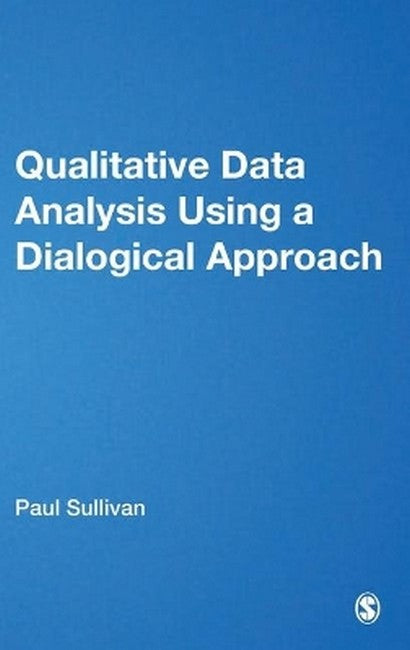Dr Paul Sullivan lectures psychology at the University of Bradford. His research is concerned with the significance of dialogue in understanding interpersonal as well as intrapersonal relationships and its applications for doing qualitative psychology. He is the 2009 winner of the Qualitative Methods in Psychology Section Prize for: 'Outstanding Early Career Scholar'.
Request Academic Copy
Please copy the ISBN for submitting review copy form
Description
Introducing Dialogue to Qualitative Analysis Analyzing Subjectivity in Qualitative Research Using Dialogue to Explore Subjectivity Data Preparation and Analysis Writing up an Analysis Double-Voiced Discourse and Focus Group Data Analyzing Commentaries on Subjectivity Evaluation Discussion
Dr Sullivan provides an accessible and pragmatic, yet sophisticated, introduction to dialogical analysis. This book will be of great interest to students and researchers looking to expand their skills in qualitative analysis and offers many novel and creative ideas for approaching qualitative data Dr Anna Madill Reader in Qualitative Inquiry, University of Leeds Sullivan delivers a compelling set of arguments in favour of the use of a dialogical approach in qualitative data collection and analysis. His work is well-argued and supported by the use of relevant literature and examples of the approach in practice through reference to case studies. Sullivan achieves his aim of making the book as accessible and user-friendly as possible through: the provision of a detailed contents section; clearly communicated chapters using little jargon; reference to examples of how to apply the approach in practice; tables summarising key information and, links to further recommended reading. Despite the complex nature of the dialogical approach the above format suggests that there is potential for successfully using the approach. This would apply to practitioners, academics and students from a range of disciplinary backgrounds engaged in differing forms of qualitative research. Based on this I would recommend Sullivan's text as an introduction to a challenging yet accessible, innovative and rewarding way of undertaking and analysing future qualitative research studies Emma Smith Methodspace Book Reviews Group The book can easily be read because the author employs terms carefully, using a simple and clear language. He avoids too technical terms and uses a simplified style to guarantee that readers understand its objectives. Sullivan's style is illustrative and uses examples all along the book about dialogical logic through diverse disciplines...To sum up; Sullivan offers an important material for qualitative methods' users...His work is a rich source of illustrations, figures, tables, examples and further readings, fulfilled by a rich, consistent and updated bibliography. Nadia IDRI Methodspace Book Reviews Group I enjoyed this book very much. It is well written and is suitable for lecturers, researchers and students who wish to know more not just about the Bakhtinian dialogical approach but also other more mainstream and favoured qualitative research methodologies. It is highly readable and being written by the same author, rather than being a series of edited chapters by disparate writers, means that the chapters link well together... Sullivan uses copious examples from his own research and brings us from the very beginning, the planning stage, right through to the writing up stage of a number of his and other researchers' work. At all times it is written in a clear accessible, and at times humorous, manner... This is a good book on an important area which will contribute to the increasing presence of qualitative research in academic departments throughout the world. Joe MacDonagh Qualitative Methods in Psychology

